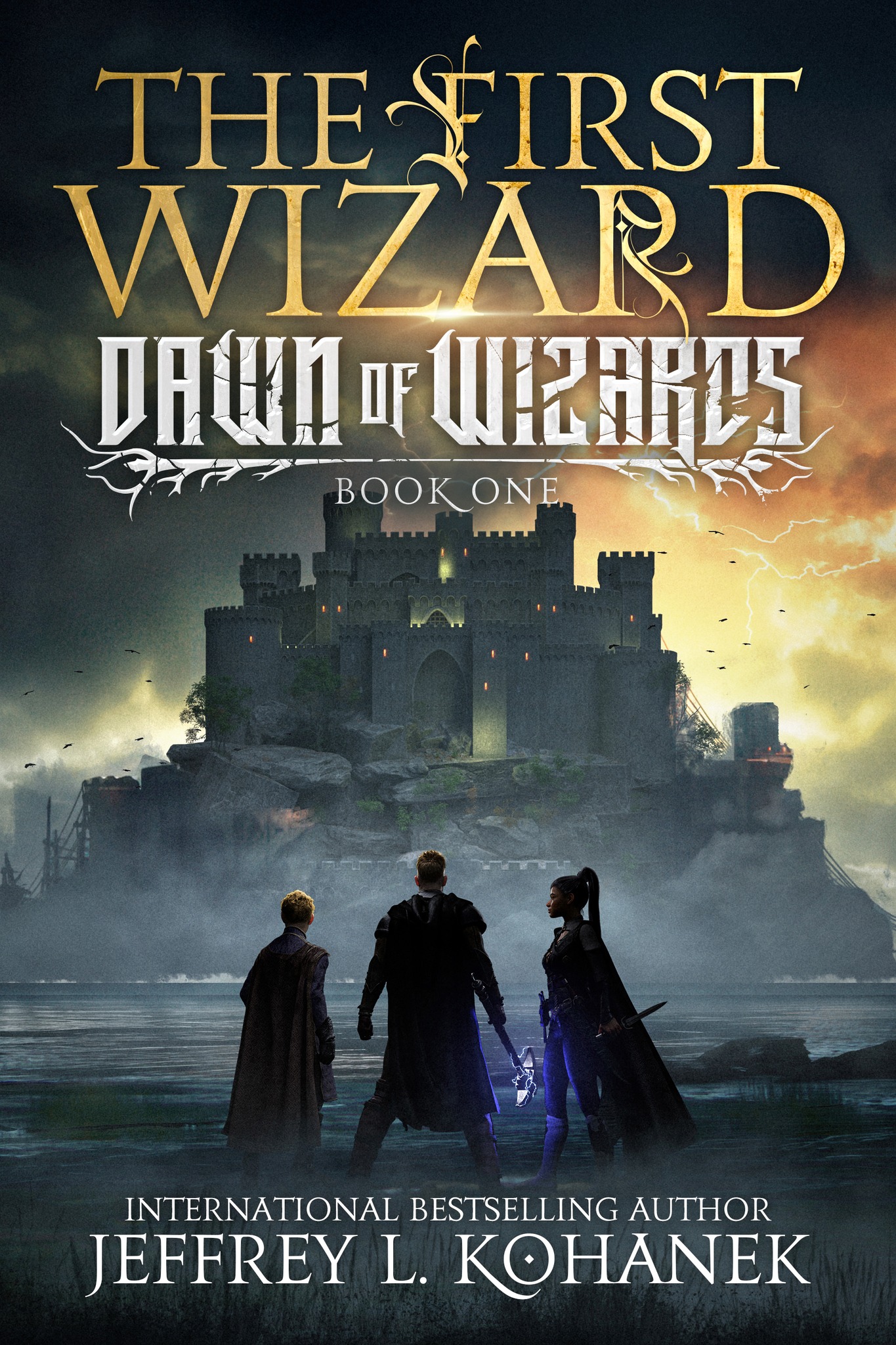Offering a Little Insight
Today I have the privilege of having Jeffrey L. Kohanek, author of the book, The Buried Symbol, for an author interview. If you leave a comment below before the end of July, we’ll put your name in a hat, and one lucky responder will receive a copy of The Buried Symbol, book one in The Runes of Issalia trilogy. So, don’t forget to drop a comment below for a chance to win!
Thanks for joining us today, Jeff! What inspired you to start writing a fantasy novel?
From a young age, I’ve felt driven by an internal desire to create. With an early love for heroes with super powers, I found my childhood-self creating my own comic books. In my adult life, I’ve spent a number of years writing in a business-marketing role, which allows for creativity but not to the extent that I would like. Two years ago, I decided to harness that creativity in a new way and focus on writing novels.
I had ideas in my head about a world, a magic, and a story that I wanted to tell. Inspired by other amazing fantasy authors, I spent the next year writing the first book. Six months later, I signed with a publisher and have been on a wild ride ever since.
I was that way as a kid, too. Bet there's a lot of guys who hoarded comic books, but creating our own, that's a different story. What authors have most influenced your life? What did you like about their work?
Different authors have influenced various points of my life. In grade school and middle school, I first grew to love fantasy novels during my journeys to wondrous lands such as CS. Lewis’ Narnia and J. R. R. Tolkien’s Middle Earth. In my teens, my love for epic fantasy grew to a crescendo with David Eddings’ Belgariad and Raymond E. Feist’s Riftwar series capturing my imagination, leaving me enthralled with the idea of discovering magical abilities and learning to harness them. When I finally decided to write The Runes of Issalia trilogy, it was with the desire to instill that same sense of wonder in my readers.
More recently, I would say that my favorite authors are Robert Jordan, Brandon Sanderson, and Patrick Rothfuss. I consider Jordan to be the king of worldbuilding, Sanderson to be the best at creating interesting magic systems, and Rothfuss to be a grand storyteller. When you read my series, you should see some influence from each of the authors listed as they have all shaped my work in some manner.
I can see some of Jordan in your writing, especially the good/bad magic of Saidinvs.Saidar. I would agree on his worldbuilding, it's amazing. Your Issalia is pretty immersive as well. Not only present day, but it seems to have a very rich history, which I'm sure we'll get a peek at in later books.
Brock is an overcomer, sort of like Aladdin at the beginning. Tell us about him. Was there a real-life inspiration behind him?
I often gravitate toward the underdog, finding their ability to succeed against difficult odds to be extremely compelling. Thus, featuring a protagonist that is the classic definition of an underdog was as easy choice for me to make.
Brock is the embodiment of the human spirit, refusing to give up though he has little history of success in his past. As the story progresses, things become easier for him partly because of his dramatic status change and partly because he finds himself in a position that takes advantage of his natural abilities.
I modeled Brock after myself, but a better version of myself. While he certainly isn’t perfect, I wanted a protagonist is likable and perhaps even inspirational. He is small of stature, but has a big heart. He has good intentions, but is willing to break the rules when necessary. He is selfish enough to look out for himself, but shows compassion toward others whenever possible. Brock wants to do the right thing because that where his moral compass points him, even if doing the right thing is against the law or against popular opinion.
The plight of the Unchosen in The Buried Symbol is similar to several people groups in our world today who are discriminated against, treated as a bit less than ‘people’. The Untouchables in India comes to mind. Was there something that inspired this facet of your novel?
The evils of discrimination is definitely an underlying theme in the book. By placing the reader behind a main character who is treated like a social outcast, it provides perspective that I hope will have positive impact. However, I cannot lie and say that was my only goal. The existence of Unchosen is a critical plot element for the series, leading to a number of secrets that come to light during the story. The first reveal occurs near the end of book one, but there is more to come as the plot unfolds.
I know what you mean, but of course saying more would be introducing spoilers. :-)
The idea of Runes being a source of power, or a way to identify or harness power, is new to me. Was there something that gave you the idea, or was that something you dreamed up on your own?
Rune magic in various forms exists in other fantasy works. However, the particular approach I took is something that I dreamed up while reading book two of The Stormlight Archive by Brandon Sanderson. Having an engineering background, I gravitate toward magic systems that are logical, considering magic to be a kind of science that we haven’t yet discovered. When readers follow the story, I want them to feel as if they know how to work this magic and can put themselves in Brock’s position as he discovers the limits of his abilities.
Is that common to engineer authors? Magic 'mechanics' or science, is intriguing to me as well.
What was your favorite chapter (or part) in the book, and why?
Three specific chapters jump out at me, but they likely aren’t what you think.
- I love the chapter where Brock has a flashback dream of his childhood, drawing tears every time I read it.
- I also really like the chapter where Brock and Ashland first kiss because it stirs memories of how it felt to be seventeen and fall in love for the first time.
- However, my favorite chapter is the morning after Brock’s first experience drinking wine at The Quiet Woman inn. Fantasy books often feature dark taverns filled with rude men groping pretty waitresses. I created The Quiet Woman to be the opposite of that trope, filling it with women drinking coffee or wine and feeling welcome and empowered. Since it rarely has male patrons, Brock’s gregarious nature quickly makes him a favorite of the women who frequent the inn. When Tipper describes Brock’s antics from the previous evening, Brock groans in embarrassment at what he did while under the influence of too much wine. In addition to making me laugh, I see the chapter as a good lesson for all ages as to what can happen when you abuse alcohol. I wrote the chapter from experience, knowing that I need to keep the lesson in mind as well. As a side note, I’m known to take my shirt off and do some acrobatics from time to time, so you know where that part of the story came from.
Is there a message in your novel that you hope your readers will grasp?
I don’t want to sound preachy, nor make my book seem that way. However, if my writing can influence some readers to be a bit more compassionate, I’ve made the world a better place. I also hope to inspire others to overcome the obstacles in their life.
I’d love to read more of Brock and Tipper and their friends at the Academy. When will the sequel be out, and how can readers nab a copy?
Book 2, The Emblem Throne, is releasing on October 6, 2016. Readers will be able to pre-order signed print copies from my website in early September. It will also be out in print and ebook formats with major book retailers after the release date.


